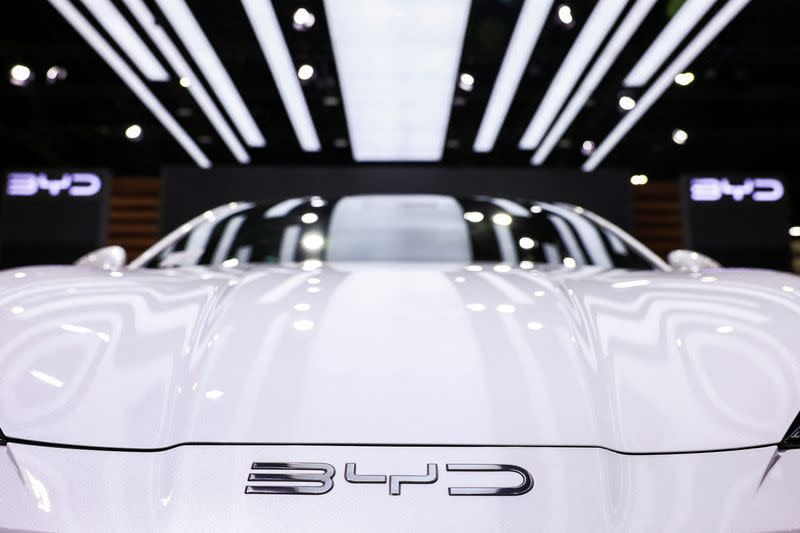Factbox-How China's EV battery makers stack up in energy storage

China's EV battery giants CATL <300750.SZ> and BYD <002594.SZ> are eyeing the growing market for stationary energy storage.
Here are the numbers behind their energy storage business:
CATL has ranked first globally in terms of battery deliveries for energy storage since 2021 with more than 40% of the global market share, according to its annual report. It counts among its major clients state-owned power companies such as Huaneng as well as top energy storage system manufacturers including Sungrow Power Supply.
CATL saw deliveries for storage soar 46.8% to 69 gigawatt-hours (GWh) in 2023, outpacing its 32.6% growth for EV batteries.
Energy storage batteries accounted for 17.6% of CATL's total battery sales volume, up from 12.5% in 2021.
CATL will also supply battery cells and packs to Tesla's export-oriented Megapack storage plant in Shanghai, which will start production in early 2025 with plans to export, according to a person familiar with the matter.
Tesla's Shanghai plant will be able to make 10,000 Megapacks a year with a combined 40 GWh of storage capacity, official media has reported.
Rival BYD delivered 22 GWh of batteries for energy storage in 2023, up 57% from 2022, outpacing its EV battery shipments growth of 15.6%, according to SNE Research.
By comparison, BYD's EV battery shipments totalled 135 GWh last year.
Smaller players EVE, REPT, and HITHIUM also saw more than 100% growth in their energy storage battery sales last year, with 11%, 8%, and 7% of the 185 GWh global market, respectively.
(Reporting by Zhang Yan and Colleen Howe; Editing by Lincoln Feast.)

 Yahoo Finance
Yahoo Finance 